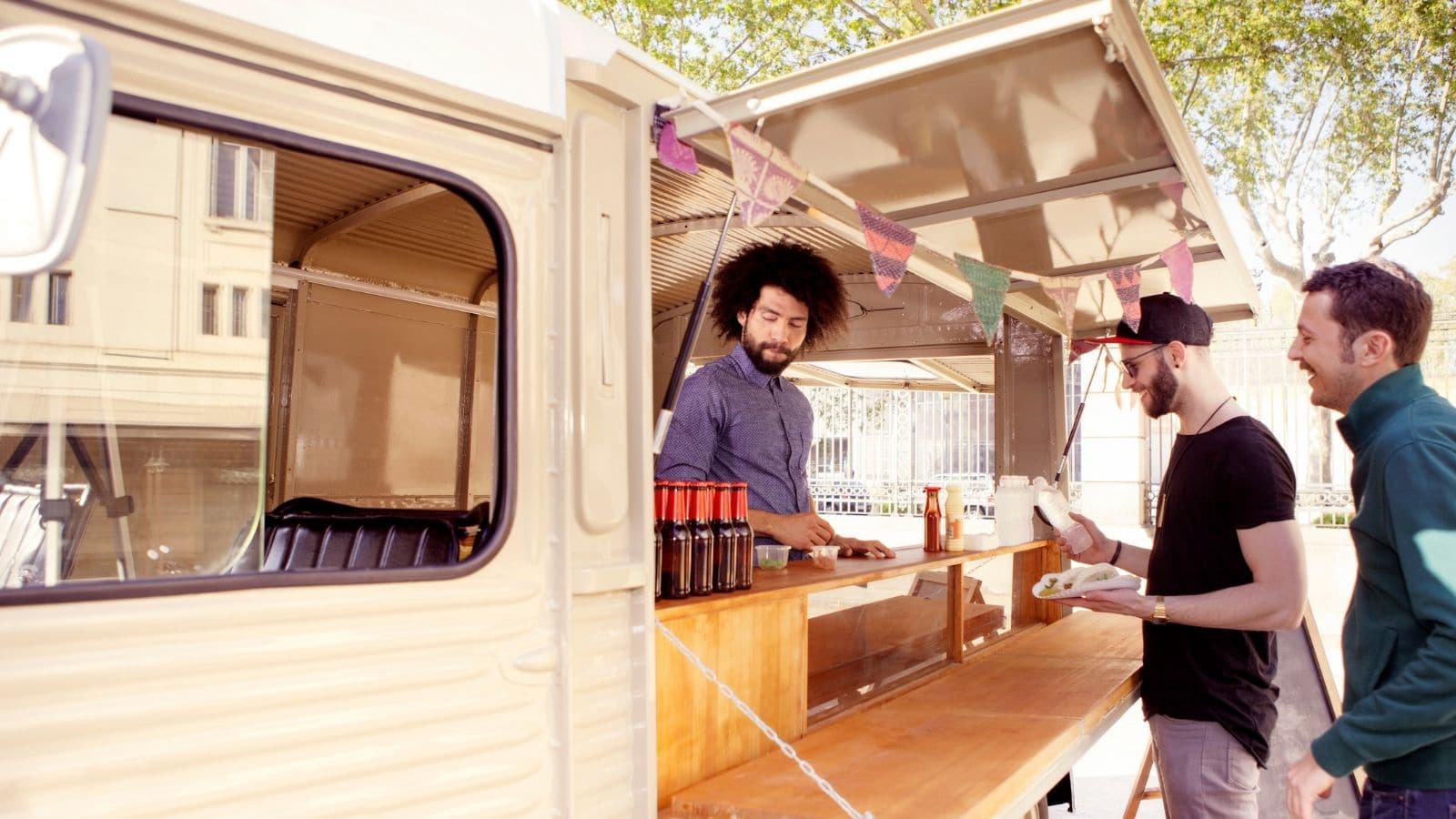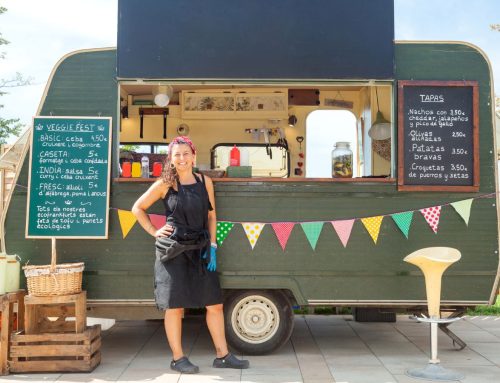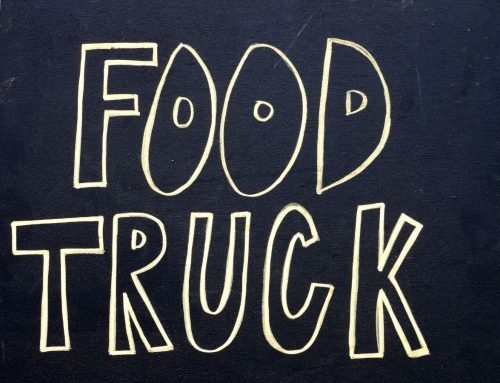Just a couple of decades ago, the humble food truck was considered a questionable dining choice, at best. But in recent years, It has gone through its own sort of renaissance, becoming known for a large range of cuisines and styles. It’s an excellent business that many chefs have embarked on. But what do you need to know if you want to start your own food truck business?
No doubt, you already bring plenty of culinary skill and creativity to the table. But what about the logistics — the actual nuts and bolts of getting a food truck and setting up your business for success?
In this article, we’re going to help you with all the smaller details you need to know about building your own food truck business and what tools are out there to help you succeed.
Let’s get right into it!
How to Start Your Very Own Food Truck Business
Purchase a Capable Truck
This might seem a little on-the-nose, but finding a reliable truck can be half the battle in starting your business.
For starters, what do you need to consider when it comes to buying a food truck? Here is a brief checklist of questions that will help you find the right truck for your business…
- Does your area place restrictions on the size of food trucks, such as height and length?
- How big are the parking spots where you plan to sell from?
- What equipment will you need to prepare your menu and will the food truck be able to support it?
- How many employees will be working in the truck at any given time?
Apart from these questions, you’ll also need to find a truck that is mechanically reliable — after all, if it has any mechanical issues, you’ll not only be paying to fix it but also losing out on daily profits while it’s in the shop.
But, of course, the ultimate question is, where do you even buy a food truck?
Here, you have several different options. You can look on sites like eBay and Craigslist, where someone local might be selling a food truck. There are also sites that specialize specifically in food trucks, such as Food Truck Empire or Roaming Hunger. On these sites, you can look for trucks all over the country and search through a variety of sizes and models to fit your needs.
Apply for Your Permits
Permits are never a fun topic — but it’s one of life’s little necessary evils.
Here’s a breakdown of some of the most common permits and licenses you will need, depending on your state and local regulations…
- Business license
- Employer identification number (EIN)
- Driver’s license (depending on the size of your truck, you might even need a commercial driver’s license)
- Food handler’s permit
- Health department permit
- Parking permits
- Seller’s permit
- Fire certificates
- Commissary letter of agreement
- Standard operating procedure document
- Special event permit
Again, these permits change from state to state and city to city — some areas might require all of these, while others only require half. Do a Google search with “food truck” and the name of the city where you want to open shop to see exactly what you’ll need.
Create a Website
Now that we’ve talked about the physical side of starting a food truck of your own, let’s talk about the digital side. For starters, a website.
Your food truck website is an important hub for people to learn more about you, your schedule, and your menu. It often adds an air of legitimacy to your business and can even motivate people to make the effort to come to your food truck over another truck or restaurant.
And your food truck website doesn’t have to be anything complicated! All you need is one to four pages that will display your essential information.
Include information that people want to know when visiting your website. For starters, you should include…
- Your location (or schedule of when you’ll be in certain locations)
- Your operating hours
- Your menu
- Your contact information
- Photos of your food
Use Online Ordering Tools
In recent years, we’ve seen incredible growth in the restaurant industry, with many tools coming out to make food ordering easier. And online ordering is one such tool.
After all, online ordering opens you up to a whole new segment of your audience — those who are unable to come to your food truck but who still want to enjoy your cuisine. It’s a convenience that potential customers appreciate. And this means an extra stream of income, apart from your in-person customers.
It can even be a convenient feature for those waiting in line — they can just put in their order, pay online, and skip the hassle.
So, look into an online ordering tool that works for your business.
But we should also mention a word of caution — after all, not all of these tools are created equal. Sadly, some big-name apps like UberEats or DoorDash often include fees that cripple restaurant owners and could make it harder for you to see a profit from online ordering.
Here at DevourNow, we are happy to partner with local restaurants and food trucks to provide online ordering and other tools that work with your business and don’t gauge your bottom line. We invite you to learn more about our online ordering tools and even check out our comprehensive monthly subscription plans that offer more comprehensive assistance.
Promote Your Food Truck Business
One of the best modern tools for promoting your business is social media. Social media networks like Facebook and Instagram are perfect for food-focused businesses, where you can post all about your business.
What can you post to promote your food truck? Here are a few ideas to get you started…
- Mouthwatering photos
- Updates and milestones
- New menu items
- Special events where people can find you
- Where you’re going to be on specific days
- Polls
- Customers enjoying your food
And the list goes on — the more you post about your food truck, the more it will keep you top of mind with your customers.
Do your research to see which social networks are best for your business and goals. Make sure that the network has features that will help your business (i.e., polls, live video, etc.) and that your target audience is present and engaged on the network.
But there are other ways to promote your food truck outside of social media. For example, you could…
- Partner with a food blogger to write about you.
- Send out a press release about your biggest events.
- Create a food blog on your website.
- Offer to cater for a local event.
- Offer free samples of your food.
- Sign up for food truck festivals.
- Create a food truck newsletter.
The point is to get your brand out there, in front of people, and ultimately get people excited to come by and check you out.
Concluding Thoughts on Starting a Food Truck Business
While there’s definitely less overhead with a food truck than with a traditional brick-and-mortar restaurant, there’s still a lot to consider. We hope that this helps you to understand more about the ins and outs of starting a food truck business and gives you the direction you need to move forward.
We can’t wait to hear about your growing food truck business and hope that we’ll be able to come and sample it personally! Let us know about your food truck in the comments below — and let us know about your own ups and downs along the way!
You May Also Enjoy Reading…




Leave A Comment